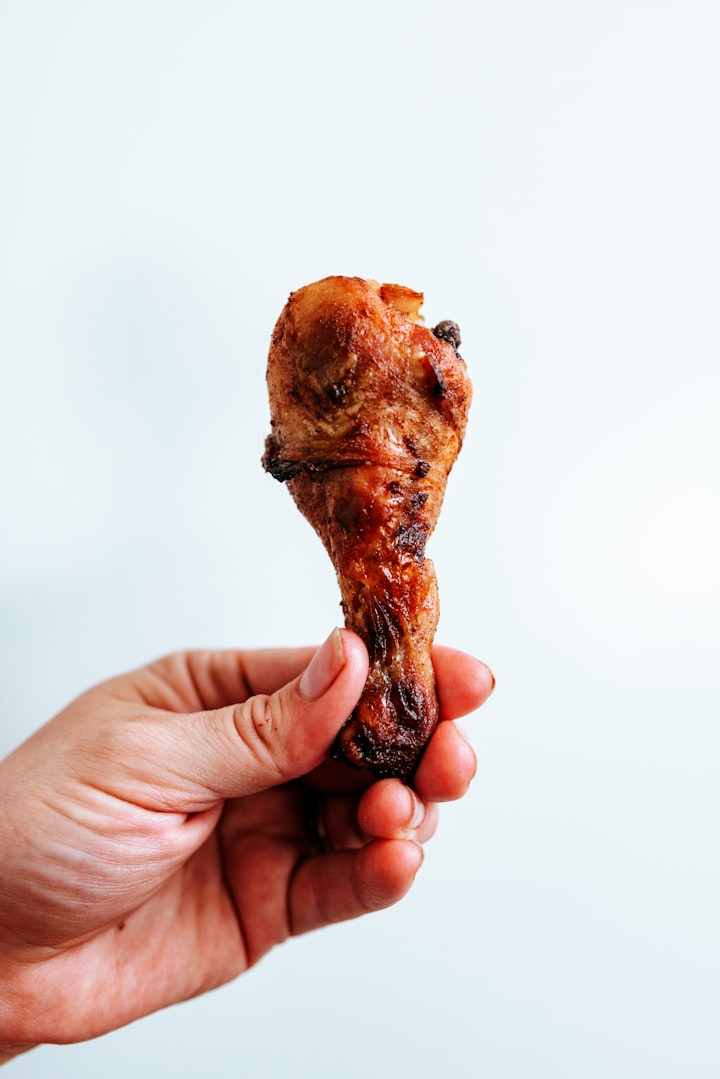
It was much too hot to eat, we believed, and no matter our hunger, it was much too hot to brave the perils of the ride in a hot car, the few thousand miles we had to travel. The actual distance was fewer than a dozen miles, but we were children, and nothing was ever medium-sized to us — either gigantic, or miniscule. Degrees of intensity were a grown-up's necessity.
My parents believed it was a necessity for us to spend weekends over at my grandparents' house, especially during the early summers. Dad's mom and dad made it seem like our weekly arrivals were high points of their lives — which seemed awfully sad to me, when I was maybe ten, but I saw through it a couple of years later and just figured they were being kind to us. It was many more years after that before I took them at their word, but by then, I had my own little ones to fob off onto my parents. and it made sense to me. My grandparents were genuine in their enthusiasm for seeing us — and for feeding us — during those oppressively hot summers, in mighty Texas.
Summer had not just begun. It had announced itself, with all the sublime grace of someone kicking in the door of our bedroom, the one my younger brother, Eddie, shared with me. Next door, our sisters, Claire and Raye, making an impressive show of not caring about our imminent expedition across the city, chatted on the phone with big sister Raye's school friends. Eddie feigned sleeping. I was too excited to sleep, early Sunday morning. We had a voyage to undertake.
Honestly, who sleeps in on a weekend, when there was so much adventure to be had outside of our house, particularly during the summertime?
Dad roused my brother with a solid knock on our door, letting us know we were expected at his mother and father's house. No need to tell me twice. I was a true believer in the basic laws of my existence; weekends were better than weekdays, aliens and dinosaurs were better for games than either cops or cowboys were, and — most importantly of all — our Grandma Jess made a Southern fried chicken that was better than, well, just fill in the blank, it came in first place over all possible competitors when it came to satisfying our palates. I didn't even know what a palate was, at the age of ten, but I knew: the shortest distance from here to happiness ran from our house to our grandparents' kitchen, on those glorious weekend afternoons. Dad's joke was that we sometimes had to visit on Saturdays, since he couldn't wait another day for some of his mom's Southern fried chicken.
Nobody could blame him for that. We started to anticipate the taste before we could even get on the road, the six of us, two parents and four children. Dad drove with the windows rolled up and the air conditioning going full blast. Today, we would notice how this was doing its little bit to harm the environment. In those days, we were more concerned with surviving that Texas heat, and those weren't even days of record temperatures; a typical summer for us was scorching enough.
Jess must have sensed our presence. She hollered, "Come on in — I'm just getting started," before Dad had turned the ignition key to the off position. We kids crawled, then ran, out of the old station wagon, to get inside and grab glasses of iced lemonade, waiting for us on a table, beside one of her big pitchers. Jess had set another pitcher of iced lemonade, to share with Grandfather William, and our parents. In the living room, an electric fan rattled noisily, as it rotated to and fro, with menacing severity; it sent out waves of cold-ish air, rushing past our pink, young faces, which we didn't mind.
The first time I had watched her making it remains a clear recollection of mine. I was a confirmed fan of her recipe, because of the taste (and the amount we got to eat); Jess made more than we could wolf down in an average visit. She was delighted to send us home with delicious second helpings. I decided that day to observe her process of manufacturing our meal, not to learn how to cook, so much, as to understand how she did it.
I pulled a chair out from the dining table and dragged it with a scraping noise across the kitchen floor. My chin resting in my hands, I took in the elements of the chicken-assembly line atop our grandmother's stove. A whitish powder rested in a clear bowl. Jess called it flour; it did not look like a rose or a bluebonnet, or any kind of flower I had seen, but moving on, she dumped a small amount of crmubling reddish material onto the flour mound. Chili powder, she called it. Other small amounts of loose powder followed suit; the black pepper I recognized, especially once my grandmother made a sneezing sound and smiled, but the other was pale sandy-colored, and I did not know it was garlic, until she explained: "It's like you put on your spaghetti."
More than a "pinch", whatever amount that meant in measuring terms, of salt and a rusty-brown thing she told me was called "paprika", and we were off to the races. She mixed up the whole thing into a big, wonderful mess, a magical potion. It had to be magical, because at one point, she shooed me from her side. "This is the 'secret family recipe' part of the whole thing," Jess maintained, trying not to smile. I was annoyed at being left out of the procedure, but I turned my head, counted to maybe seven or eight, before she invited me to resume vieiwng her efforts. I found out later that eggs were more than casually involved.
I watched as she clutched each raw piece of chicken, be it wing or thigh or drumstick, with something like big scissors, that ended in metal loops on the far ends. She rolled the pieces in the flour-and-spice pile, shook them to get the consistency correct ("Just so," she would say, "I have to get it to be just so"), before she introduced the chicken pieces to the saucepan.
She turned the heat up, on a day when we had more heat than we wanted already, and rotated each piece, until she considered each one to be cooked sufficiently. By the time she had a bowl of ready pieces, and the salad bowl and toast were ready, my siblings were rapt with fascination, too, watching from their own pulled-out chairs, except for Raye, who stood beside Jess. Raye was almost thirteen, and not much for ceremony; she, and we, were hungry!
We went back for seconds, of course; I usually went back for thirds, and on one storied occasion, made a fourth trip to the kitchen. Dad thought I was a bit on the greedy side, but his mom, Jess, said it was high praise to her cooking.
The grown-ups gathered around the television set, to root for the Texas Rangers baseball team. We four were dispatched to the back yard. Our imaginings kept up aloft, while our full bellies weighted us down, a bit.
Dusk arrived. Raye pointed out the sudden arrival of fireflies. One followed Eddie as he walked back inside to get more lemonade; Claire tried, without success, to catch it, in her hands. We lingered, in the open doorway, trying to see our features and expressions, in the cooling darkness.
© 2022 Eric Wolf.
About the Creator
Eric Wolf
Ink-slinger. Photo-grapher. Earth-ling. These are Stories of the Fantastic and the Mundane. Space, time, superheroes and shapeshifters. 'Wolf' thumbnail: https://unsplash.com/@marcojodoin.






Comments
There are no comments for this story
Be the first to respond and start the conversation.